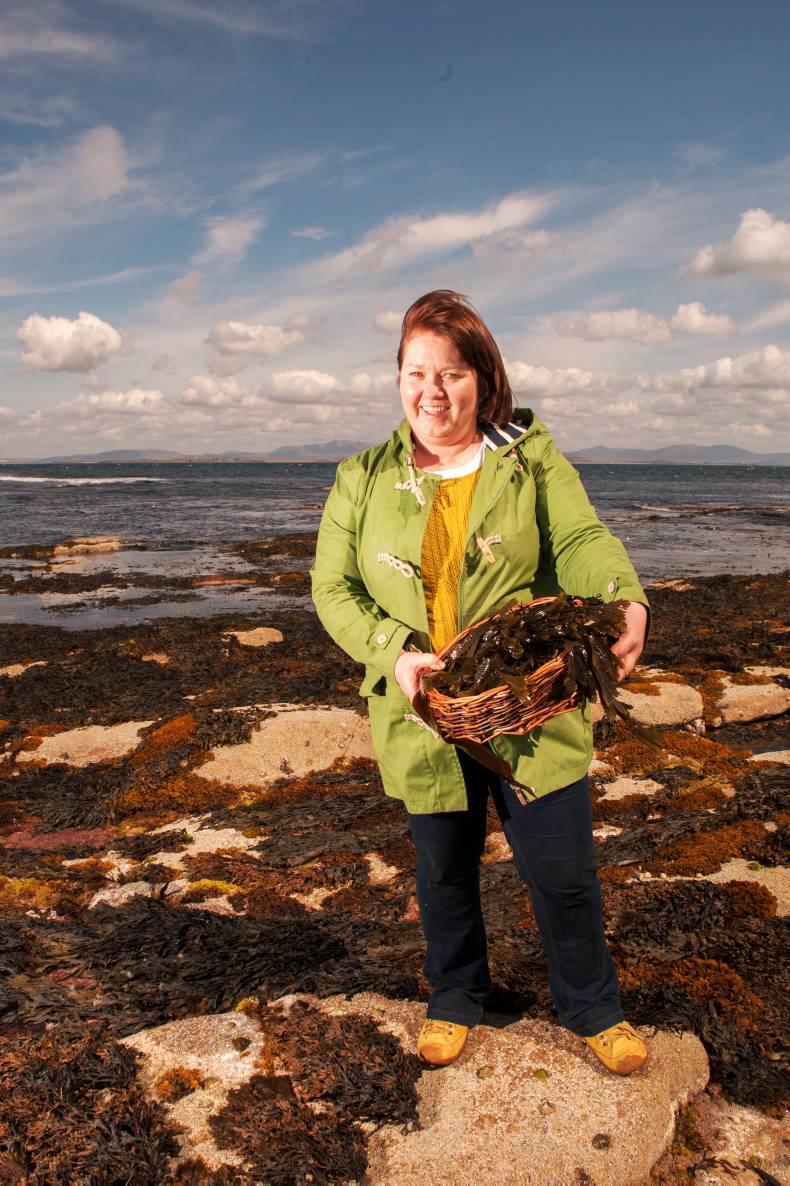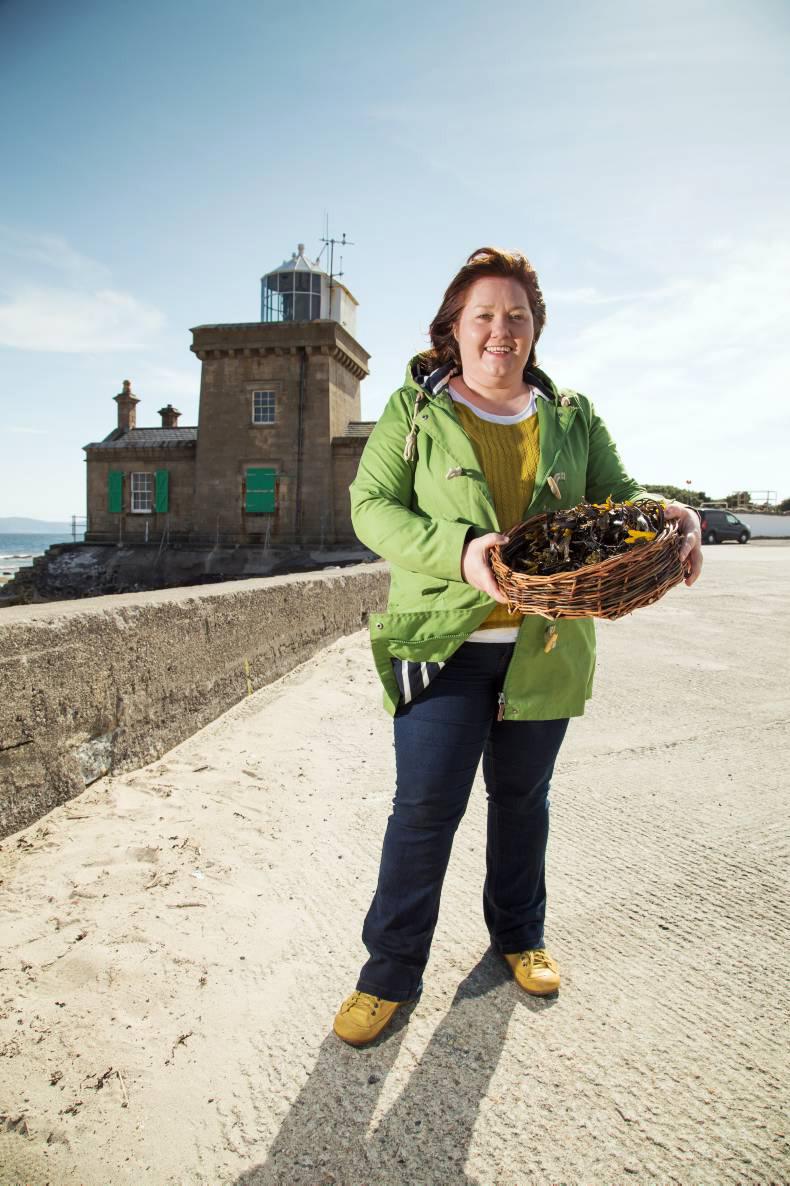When Barbara Heneghan left her job with Bord Gáis in October 2011 to follow her heart home to Black Sod to set up her own business, some people may have thought it risky to sacrifice such “security” mid-recession.
She, however, would argue otherwise.
“There’s so much entrapment in security as well, you know?” she explains. “And I felt, ‘No. You’ve only one life and while it’s meant to be lived safely, it’s not always to be secure.’”
Irish Country Living is sitting at Barbara’s table, enjoying a lunch prepared from foraged ingredients: a comforting nettle and seaweed soup served with a slice of nettle and thyme bread, followed by a generous hunk of sugar kelp and orange cake.
It’s just a taste of what you might enjoy on one of her “Gaol Siar” foraging and cooking workshops exploring the seashore, bogland and wild meadows of the Erris Peninsula in Co Mayo, which have sustained her family for generations.
Barbara’s family has lived in Black Sod since the 1800s, and despite – or perhaps because of – the isolation of the region, innovation has always run in their blood, from processing fish oils to exporting.
“During the Second World War, my grandfather won a contract to supply laminaria – which is the long stringy seaweed – to Britain. They used it to make parachutes for the soldiers,” explains Barbara as an example.
“When you think, it was highly innovative when you had no Internet … barely even telephones.”
Traditional ingredients
As one of eight children raised in a lighthouse dwelling in Black Sod in the 1980s, foraging for traditional ingredients was simply a way of life, not only to put food on the table, but also to soothe a cough or a cold, thanks to the old cures passed down by Barbara’s grandmother, who was a field nurse at the Battle of the Somme.
“Even though she was medically trained, she very much knew all of the old cures,” says Barbara.
Barbara herself originally trained as a chef, but while she loved to cook, she didn’t enjoy the pressure of professional kitchens.
Instead, she returned to study business and started working as a logistics planner with ExxonMobil (known as ESSO in Ireland), a job that took her all over Europe. She later lived in Nigeria, where she completed a stint as a volunteer with Médicines Sans Frontières … but?
“The funny thing is, no matter where I worked – whether it was: in Dublin, Manchester, in Paris – I always spoke about Black Sod,” admits Barbara.
During the Second World War, my grandfather won a contract to supply laminaria - which is the long stringy seaweed - to Britain.
Barbara returned to Dublin to work, but took the opportunity to move closer to home when a job came up with Bord Gáis in Castlebar. But by October 2011, she was ready for a new challenge.
“Eventually after four years I said, ‘That’s it: I have to go now and do my own thing,’” she says.
The resulting business – Gaol Siar – brings together Barbara’s love of food and the local heritage of Black Sod with a range of foraging walks and workshops ranging from wild cooking to making your own natural skincare products.
For example, the possibilities with seaweed are endless, from substituting “sea spaghetti” for pasta to using collagen-rich channel rack for a nourishing face cream.
Gorse goes especially well with honey in cake. Meadowsweet – a traditional cure for a headache – makes for a refreshing spritzer.
Even the humble dandelion – so often mowed over – can be baked into bread with rosemary, roasted for coffee or distilled for a healing balm.
Many of her customers are chefs and foodies, who want to learn how to identify and use wild ingredients, while she also caters for families who want their children to have a greater appreciation of their natural environment.
Indeed, such is the richness of the local landscape that, from August to the end of October, Barbara can live almost entirely self-sufficiently, between foraging, fishing and her own veg plot.
“I would probably buy milk and that’s it,” she surmises.
Everything had a use and everything had a reason to be used
While summer is Barbara’s busiest time, off season she produces soaps made from foraged ingredients – such as wild rose and clover; heather and moss; nettle and mint; and dandelion and woodbine – which not only smell sensational, but also have uses dating back to Celtic times. Woodbine, for example, was a traditional painkiller; while rose has a calming effect on the skin.
“People were very practical then, there was no such thing as ‘impulse buying,’” she jokes. “Everything had a use and everything had a reason to be used.”
While Barbara sells the soaps on her online shop and through selected independent retailers, she recently completed Phase 1 of the New Frontiers programme and is hoping to break into the export market.
Which, in a way, is not so different to what the Heneghans have done for the last 200 years on Black Sod.
“I feel I’m continuing on family traditions,” she smiles.








SHARING OPTIONS